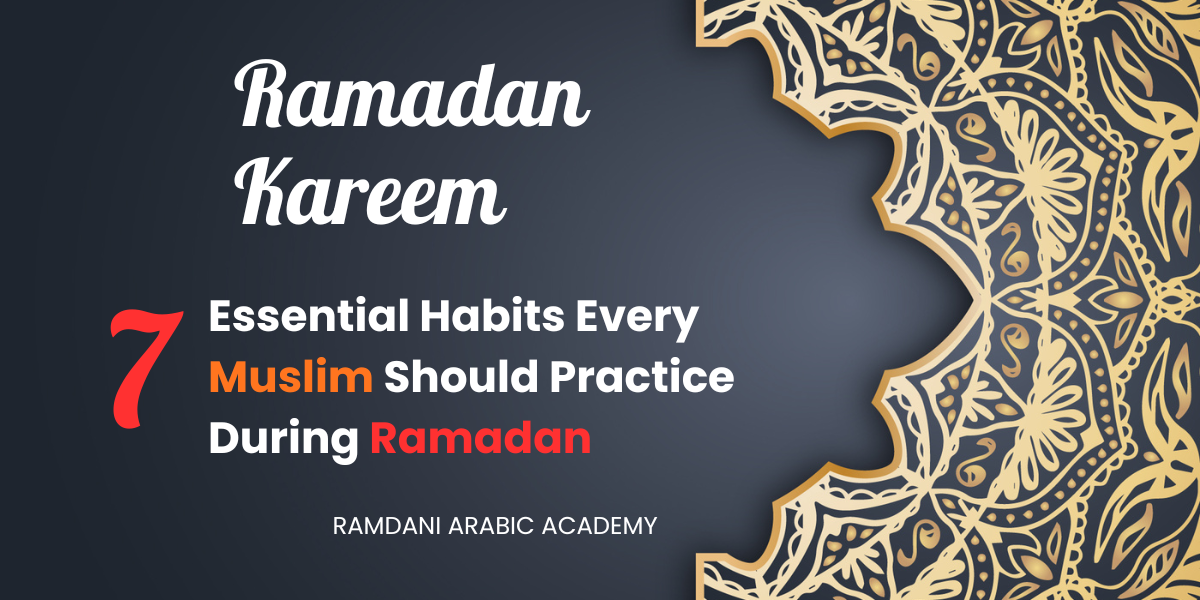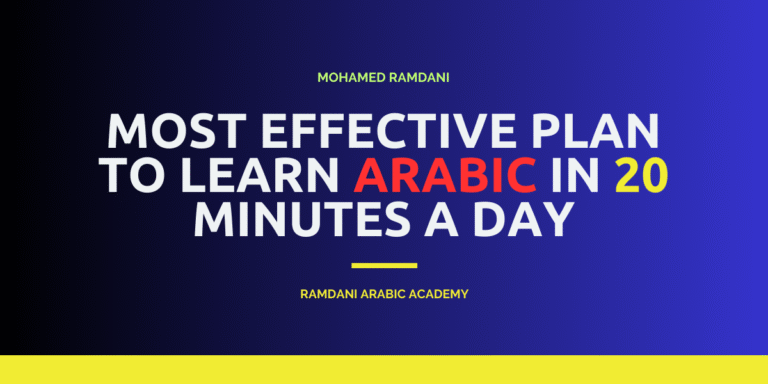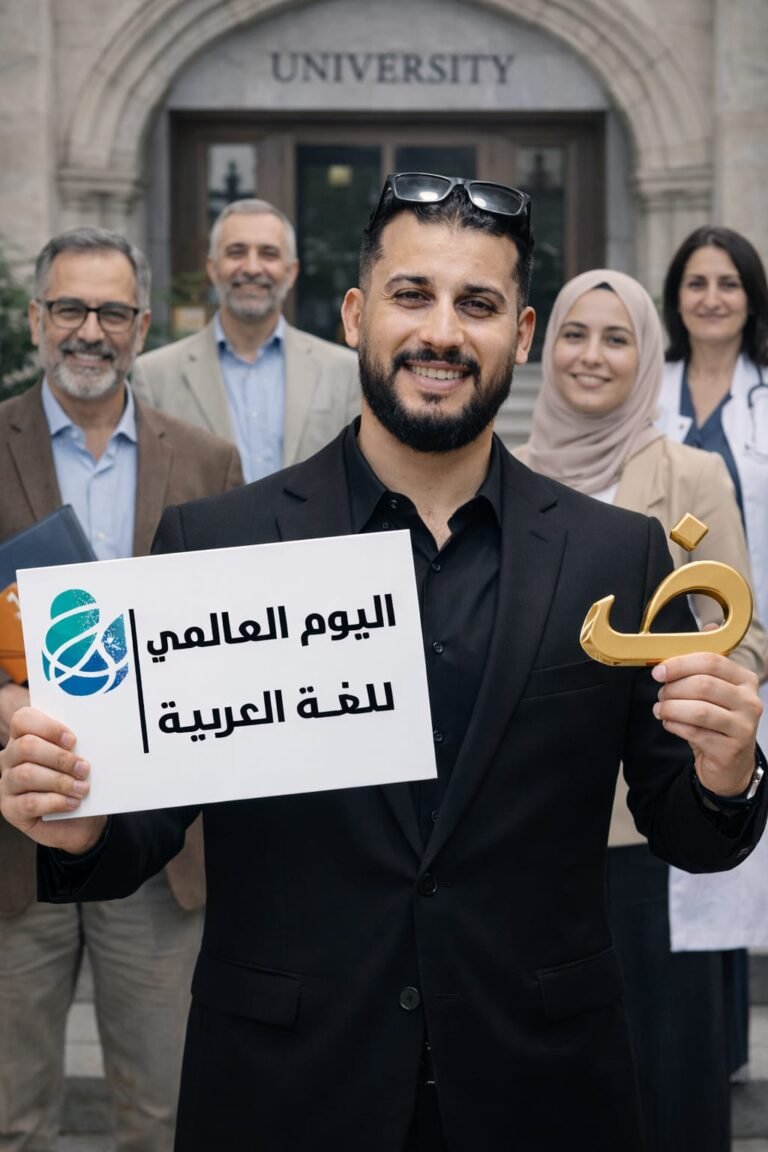5 Essential Habits Every Muslim Should Practice During Ramadan
Ramadan is a time of discipline, reflection, and growth. For Muslims around the world, it is more than fasting from food and drink. It is a month to strengthen faith, improve character, and connect with the community. Each day presents an opportunity to practice habits that shape not only your spiritual life but also your personal and social well-being.
Many Muslims focus on the outward aspects of Ramadan, like fasting and prayer, while overlooking daily habits that can maximize the benefits of the month. The right habits, practiced consistently, can transform your experience. They help you maintain energy, deepen your spirituality, and build lasting positive routines.
During Ramadan, time management becomes essential. Balancing worship, study, work, and family requires intention and planning. Simple habits, such as starting the day with a mindful Suhoor, scheduling regular prayers, or setting aside time for Quranic reading, can have a profound impact. Over time, these habits develop discipline and mindfulness that extend far beyond the holy month.
This article will explore five essential habits every Muslim should practice during Ramadan. These habits are designed to enhance your spiritual connection, improve your personal development, and encourage meaningful engagement with your community. Whether you are observing Ramadan for the first time or have been practicing for years, these habits provide guidance to make the month more fulfilling and transformative.
Incorporating these habits into your daily routine allows you to experience Ramadan fully. Each habit supports another—spiritual focus reinforces personal growth, which in turn strengthens your contribution to the community. By committing to these practices, you create a balanced, intentional, and rewarding month that aligns with the true spirit of Ramadan.
Through these five habits, you can cultivate a deeper understanding of your faith, improve self-discipline, and develop routines that last beyond Ramadan. With guidance and commitment, the holy month can become a period of lasting transformation for both heart and mind.

Habit 1: Prioritize Daily Prayers with Focus
Prayer is the cornerstone of a Muslim’s daily life, and during Ramadan, it becomes even more central. While fasting is the most visible practice, it is prayer that nurtures the soul and strengthens your connection with Allah. Prioritizing prayers—and performing them with focus—can transform your spiritual experience during Ramadan.
Understanding the Importance
The five daily prayers are not just rituals; they are moments to pause, reflect, and reconnect. During Ramadan, when spiritual awareness is heightened, each prayer carries added significance. By treating prayer as a priority rather than a routine task, you create an opportunity for mindfulness, gratitude, and inner peace.
Focusing on your prayers means more than reciting words correctly. It involves understanding what you are saying, reflecting on your intentions, and clearing your mind of distractions. Even small changes, like setting aside your phone, finding a quiet space, or taking a moment to breathe before starting, can enhance the quality of your worship.
Practical Tips for Prioritizing Prayer
- Set a Schedule: Align your daily activities around prayer times. Use alarms or reminders to ensure you don’t skip or delay prayers. Treat them as non-negotiable appointments in your day.
- Create a Dedicated Space: If possible, designate a specific area for prayer. A clean, quiet space helps you focus and associate the environment with spiritual practice.
- Mindful Intention (Niyyah): Begin each prayer by consciously stating your intention. This simple step brings awareness and purpose to your worship.
- Learn and Reflect on Meaning: Understanding the meaning of the words you recite deepens connection. Spend a few minutes daily studying translations or explanations of key phrases. This makes prayer more than a mechanical act—it becomes a reflective, transformative experience.
- Combine with Dhikr: Supplement your prayers with Dhikr (remembrance of Allah) throughout the day. Short phrases like “SubhanAllah” or “Alhamdulillah” repeated at intervals maintain spiritual focus between formal prayers.
Incorporating Prayers into Your Ramadan Routine
During Ramadan, the rhythm of fasting naturally supports structured prayer times. Suhoor and Iftar can act as anchor points for reflection and preparation. For example:
- Suhoor: Begin the day with Fajr prayer, followed by a few minutes of quiet reflection or Quranic reading. This sets a calm, intentional tone for the day.
- Midday: Dhuhr and Asr prayers break up work or study sessions, offering mental reset and spiritual refreshment.
- Evening: Maghrib and Isha prayers coincide with Iftar and family time, reinforcing gratitude and connection.
By consciously integrating prayers into these daily moments, you maintain spiritual momentum throughout the month.
Benefits of Focused Prayer
- Strengthened Faith: Regular, mindful prayers enhance your relationship with Allah and build spiritual resilience.
- Improved Discipline: Prioritizing prayer teaches time management and self-control, which carry over into other areas of life.
- Emotional Balance: Prayer provides a structured pause for reflection, reducing stress and promoting mental clarity.
- Deeper Understanding of Islam: Focusing on the meaning of recitations enhances comprehension of Islamic teachings.
By making prayer a central, intentional habit during Ramadan, you lay the foundation for a spiritually rich month. Prioritized and mindful prayers not only fulfill religious obligations but also cultivate a disciplined, reflective, and balanced lifestyle that can extend well beyond Ramadan.
Habit 2: Engage with the Quran Daily
Ramadan is known as the month of the Quran, making it the perfect time to deepen your relationship with this sacred text. Engaging with the Quran daily is more than recitation—it involves understanding, reflection, and applying its teachings to your life. Making this a habit ensures that Ramadan becomes a month of spiritual nourishment and intellectual growth.
Understanding the Importance
The Quran is central to a Muslim’s faith, offering guidance, wisdom, and moral lessons. Reading or listening to it during Ramadan carries special significance. Each verse provides opportunities to reflect on personal behavior, strengthen faith, and find solutions to life’s challenges. Engaging with the Quran consistently allows you to internalize its messages rather than just reciting words from memory.

Practical Ways to Engage
- Set a Daily Goal: Determine how many verses or pages you aim to read each day. For beginners, even a small number, like 5–10 verses, can make a difference. Gradually increase the amount as you build consistency.
- Listen and Read Simultaneously: Listening to Quranic recitation while following along in the text can improve pronunciation and comprehension. It also creates a multi-sensory experience, reinforcing memorization and understanding.
- Reflect on the Meaning: Spend time studying the translation and tafsir (explanation) of the verses. Ask yourself how each verse applies to your life, your choices, and your relationships. This reflection transforms recitation into a meaningful habit.
- Combine with Daily Routine: Incorporate Quran engagement into existing practices. For example:
- After Fajr or Isha prayers, read a few verses.
- During breaks at work or study, listen to recitations.
- Before Suhoor or Iftar, reflect on a verse’s meaning.
- After Fajr or Isha prayers, read a few verses.
- Memorization and Repetition: Choose short surahs or important verses to memorize gradually. Repetition not only strengthens memory but also deepens spiritual connection.
Benefits of Daily Quran Engagement
- Spiritual Growth: Understanding the Quran encourages mindfulness, strengthens faith, and provides inner peace.
- Language Improvement: For Arabic learners, engaging with the Quran develops vocabulary, pronunciation, and comprehension skills.
- Personal Guidance: Reflection on Quranic messages can offer insight into daily challenges, helping you act with integrity and patience.
- Consistency in Worship: Making Quran engagement a habit ensures daily spiritual connection even outside formal prayer times.
Practical Tips for Sustaining the Habit
- Start Small: Consistency matters more than quantity. Begin with a manageable amount and increase gradually.
- Use a Journal: Write down reflections, lessons learned, or personal applications from your reading. This reinforces understanding and accountability.
- Join a Study Group: If possible, participate in Quran circles or online groups. Discussing verses with others encourages deeper insights and motivation.
- Combine with Supplication: After reading or listening, make dua about what you learned. Ask Allah to help you apply the lessons in daily life.
Applying Lessons Beyond Ramadan
The habit of engaging with the Quran should not end when Ramadan concludes. Daily recitation, reflection, and memorization can continue year-round. By building this habit during Ramadan, you create a sustainable spiritual practice that strengthens your faith and guides your behavior throughout the year.
Daily engagement with the Quran transforms Ramadan from a month of ritual fasting into a month of meaningful reflection, learning, and growth. By committing to read, reflect, and apply its teachings, you create a habit that nurtures your soul, sharpens your mind, and strengthens your connection with Allah.
Habit 3: Practice Charity and Engage with Your Community
Ramadan is a month of generosity and compassion. Beyond fasting and prayer, giving to others and participating in community activities are essential habits that make the month spiritually and socially meaningful. Charity and engagement strengthen connections, nurture empathy, and reflect the core values of Islam.
Understanding the Importance
Acts of charity (Sadaqah) and community service carry heightened reward during Ramadan. They remind us that faith is not only personal but also social. Helping those in need, supporting family or neighbors, and contributing to communal well-being are ways to embody Islamic principles in daily life.
Charity and community engagement also create a sense of belonging and reinforce social cohesion. Ramadan emphasizes empathy, encouraging Muslims to recognize the struggles of others and take action to alleviate them.
Practical Ways to Practice Charity
- Financial Charity:
- Pay Zakat if eligible.
- Contribute to local or online charitable organizations.
- Support families in need with direct financial assistance.
- Pay Zakat if eligible.
- Food Assistance:
- Prepare extra portions of Suhoor or Iftar for neighbors or community members.
- Donate to food banks or Iftar programs in your area.
- Volunteer at local mosques distributing meals to the needy.
- Prepare extra portions of Suhoor or Iftar for neighbors or community members.
- Sharing Knowledge:
- Teach Quran, Arabic, or Islamic studies to beginners.
- Conduct short study sessions or workshops within your community.
- Share practical tips for Ramadan, such as healthy fasting habits or time management advice.
- Teach Quran, Arabic, or Islamic studies to beginners.
- Everyday Acts of Kindness:
- Offer a helping hand to someone struggling with tasks.
- Listen patiently to someone in need of support.
- Practice politeness and patience in all interactions.
- Offer a helping hand to someone struggling with tasks.
Engaging with Your Community
- Participate in Mosque Programs:
Attend lectures, study circles, or community events. These activities provide opportunities to learn, connect, and contribute. - Organize or Join Iftar Gatherings:
Sharing the meal to break the fast fosters unity and gratitude. Invite someone who would otherwise eat alone, or join local communal Iftar programs. - Volunteer Your Skills:
Use personal abilities to help your community. Examples include teaching, administrative support for charity programs, or assisting in organizing events.
Benefits of Charity and Community Engagement
- Spiritual Reward: Acts of giving purify wealth and soul, bringing Allah’s blessings.
- Strengthened Empathy: Direct involvement in helping others increases compassion and understanding.
- Social Connection: Engaging with neighbors and community members builds trust and support networks.
- Personal Growth: Volunteering and giving foster discipline, humility, and patience.
Tips to Maintain This Habit
- Plan Ahead: Allocate specific times and resources for charity and community activities.
- Start Small: Even minor acts of kindness, like helping a neighbor carry groceries, are meaningful.
- Combine Efforts: Pair personal reflection with community engagement. For example, after prayer or Quran study, consider spending 10–15 minutes helping someone.
- Keep a Journal: Track charitable actions and reflect on their impact, which reinforces commitment and mindfulness.
Applying This Habit Year-Round
The habit of charity and community engagement should not be limited to Ramadan. By making giving and helping others a regular part of life, you continue the spiritual and social benefits beyond the holy month. Starting during Ramadan helps establish momentum, making these actions natural and consistent throughout the year.
Practicing charity and engaging with your community turns faith into action. These habits allow you to embody the values of Islam, strengthen social bonds, and make a meaningful impact on the lives of others. Combined with prayer and Quranic engagement, they create a balanced and rewarding Ramadan experience.

Habit 4: Focus on Personal Development and Self-Reflection
Ramadan is an ideal time to grow not only spiritually but also personally. The discipline of fasting and structured daily routines create space for reflection, learning, and self-improvement. Developing the habit of personal growth and self-reflection during Ramadan helps you gain clarity, set goals, and build habits that extend beyond the holy month.
Understanding the Importance
Self-reflection is a powerful tool to assess your actions, intentions, and progress. Ramadan encourages introspection because the month itself is about aligning your daily life with spiritual and moral principles. Taking time to reflect on your behavior, relationships, and priorities allows you to identify areas for improvement and implement positive change.
Personal development during Ramadan can also include learning new skills, exploring knowledge, and improving time management. By combining spiritual reflection with practical growth, you create a balanced approach to self-improvement.
Practical Ways to Practice Self-Reflection
- Journaling:
- Write daily reflections on your thoughts, actions, and feelings.
- Record lessons learned from fasting, prayers, or Quran study.
- Note areas where you want to improve, such as patience, kindness, or self-discipline.
- Write daily reflections on your thoughts, actions, and feelings.
- Goal Setting:
- Identify achievable goals for Ramadan, like memorizing a surah, reading a book, or helping others.
- Break larger goals into smaller, daily actions.
- Track progress regularly to stay motivated.
- Identify achievable goals for Ramadan, like memorizing a surah, reading a book, or helping others.
- Mindfulness Practices:
- Take a few minutes each day to meditate or quietly reflect on your intentions.
- Focus on your breathing, gratitude, and mental clarity.
- Mindfulness helps reduce stress, improves focus, and enhances spiritual awareness.
- Take a few minutes each day to meditate or quietly reflect on your intentions.
- Learning and Skill Development:
- Use the extra time during Ramadan to read educational books or attend online courses.
- Learn skills that benefit both personal and professional life.
- For Arabic learners, dedicate time to study vocabulary, grammar, or Islamic texts in Arabic.
- Use the extra time during Ramadan to read educational books or attend online courses.
- Self-Assessment:
- Evaluate your habits, both positive and negative.
- Identify triggers for negative behavior, like impatience or distractions, and plan corrective actions.
- Reflect on your successes and celebrate small achievements.
- Evaluate your habits, both positive and negative.
Benefits of Personal Development and Reflection
- Increased Self-Awareness: Understanding your strengths and weaknesses helps you make better decisions.
- Improved Discipline: Goal setting and structured reflection reinforce consistency and self-control.
- Enhanced Spiritual Growth: Self-awareness supports better worship, mindful fasting, and stronger connection with Allah.
- Long-Term Habits: Positive routines established during Ramadan often continue beyond the month, leading to sustained personal growth.
Tips for Maintaining This Habit
- Set a Daily Time: Dedicate a specific time each day for reflection or journaling, such as after Fajr or before sleeping.
- Be Honest: Self-reflection is meaningful only when you evaluate yourself truthfully. Avoid excuses or rationalizations.
- Combine With Prayer: Use moments after Salah to think about your goals, actions, and lessons.
- Review Weekly: At the end of each week, review your progress, adjust goals, and plan improvements.
Applying This Habit Year-Round
Self-reflection and personal development should not stop after Ramadan. By making these habits a regular part of life, you continue to grow spiritually, mentally, and emotionally. Ramadan acts as a catalyst, providing structure and focus that make long-term self-improvement more achievable.
Focusing on personal development and reflection turns Ramadan into a period of meaningful growth. Journaling, goal-setting, learning, and mindfulness help you gain clarity, improve habits, and create routines that benefit your spiritual and personal life well beyond the holy month.

Habit 5: Maintain Healthy Living and Manage Your Time
Ramadan requires careful attention to both the body and daily schedule. Fasting, late-night prayers, and family commitments can disrupt routines if not managed properly. Developing habits for healthy living and effective time management ensures that you stay energetic, focused, and productive while maintaining spiritual devotion.
Understanding the Importance
Fasting is physically demanding. Without proper nutrition, hydration, and rest, it can become a challenge to sustain daily activities and spiritual practices. At the same time, Ramadan requires balancing worship, learning, work, and social commitments. Establishing routines that prioritize health and time management allows you to maximize the benefits of the month without burnout.
Practical Tips for Healthy Living
- Balanced Suhoor and Iftar:
- Include protein, complex carbohydrates, and fruits or vegetables.
- Avoid excessive fried foods or sugary drinks, which can cause energy crashes.
- Hydrate well during non-fasting hours to maintain energy throughout the day.
- Include protein, complex carbohydrates, and fruits or vegetables.
- Moderate Physical Activity:
- Light exercise, such as walking or stretching, can boost energy and digestion.
- Avoid intense workouts during fasting hours to prevent fatigue.
- Short post-Iftar walks are ideal for maintaining fitness without strain.
- Light exercise, such as walking or stretching, can boost energy and digestion.
- Rest and Sleep Management:
- Plan naps during the day if possible to compensate for late-night prayers.
- Maintain a consistent sleep schedule to support energy, focus, and overall health.
- Avoid staying up unnecessarily late, especially after Isha and Taraweeh.
- Plan naps during the day if possible to compensate for late-night prayers.
Practical Tips for Time Management
- Create a Daily Schedule:
- Allocate time for prayer, Quran reading, learning, meals, and rest.
- Include blocks for work or study, ensuring balance with spiritual and personal growth activities.
- Review and adjust the schedule weekly based on progress and needs.
- Allocate time for prayer, Quran reading, learning, meals, and rest.
- Prioritize Tasks:
- Identify the most important activities for each day.
- Focus on completing high-priority tasks first to maintain productivity.
- Combine spiritual and personal development activities where possible, e.g., reading Quran while reflecting on its lessons.
- Identify the most important activities for each day.
- Use Breaks Wisely:
- Short breaks during work or study can be used for Dhikr, dua, or reflection.
- Avoid wasting time on distractions like excessive social media use.
- Short breaks during work or study can be used for Dhikr, dua, or reflection.
- Plan for Community Engagement:
- Schedule volunteering, Iftar gatherings, or charity activities in advance.
- Ensure these engagements fit within your overall schedule to avoid overcommitment.
- Schedule volunteering, Iftar gatherings, or charity activities in advance.
Benefits of Healthy Living and Time Management
- Sustained Energy: Proper nutrition, hydration, and rest prevent fatigue during fasting and spiritual activities.
- Enhanced Focus: Effective time management reduces stress and increases productivity in daily and spiritual tasks.
- Balanced Life: Maintaining a routine ensures that work, learning, worship, and community engagement all receive attention.
- Improved Discipline: Habits built around schedules, diet, and rest strengthen self-control and long-term consistency.
Applying This Habit Year-Round
Good nutrition, adequate sleep, and time management are essential beyond Ramadan. The habits you develop during this month can be maintained year-round to improve overall health, productivity, and spiritual consistency. By using Ramadan as a training period, you cultivate routines that support both physical well-being and personal growth.
Focusing on healthy living and time management ensures that Ramadan is productive, fulfilling, and sustainable. Balanced meals, rest, light exercise, and structured schedules help you maintain energy, achieve goals, and fully engage in spiritual, educational, and community activities.

Building Lasting Ramadan Habits
Ramadan is more than fasting; it is a month to develop habits that strengthen your faith, mind, body, and community connections. By intentionally practicing daily prayers, engaging with the Quran, giving to others, reflecting on personal growth, and maintaining health and routines, you turn the month into a comprehensive journey of spiritual and personal development.
Prioritizing prayer and performing it with focus deepens your connection with Allah and builds discipline. Daily engagement with the Quran transforms recitation into meaningful reflection, helping you understand and apply its teachings. Acts of charity and community engagement make your faith visible through kindness, empathy, and service to others. Meanwhile, self-reflection and goal-setting foster personal growth, clarity, and mindfulness. Finally, maintaining healthy eating, rest, and time management ensures you have the energy and focus to practice these habits consistently.
To maximize the benefits of Ramadan:
- Schedule daily prayers, Quran study, and reflection periods to create structure.
- Set realistic personal goals and track your progress to stay motivated.
- Plan charitable acts and community engagement to actively support others.
- Prioritize sleep, hydration, and balanced meals to maintain energy and focus.
- Avoid distractions and use technology intentionally for learning and spiritual growth.
Ramdani Arabic Academy encourages Muslims and Arabic learners worldwide to use Ramadan as an opportunity for both spiritual and intellectual growth. Through structured courses, lessons, and resources, the academy helps students connect with Arabic, understand Islamic teachings, and engage meaningfully with their communities. The habits developed during Ramadan can enhance your faith, knowledge, and life beyond the holy month.
The author, Ramdani Mohamed, founded Ramdani Arabic Academy to make Arabic learning accessible and practical for learners everywhere. Drawing from personal experience and dedication to Arabic education, he emphasizes that Ramadan is a chance not only to practice fasting but also to develop routines that improve knowledge, character, and community involvement.
By committing to these five essential habits, you transform Ramadan from a month of routine observance into a period of growth and lasting change. Each habit supports another, creating a balanced approach that nurtures body, mind, and soul. When practiced with intention and consistency, these habits help you emerge from Ramadan spiritually stronger, more disciplined, and equipped with routines that positively influence your life year-round.







